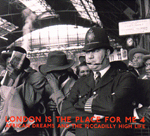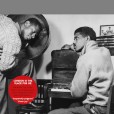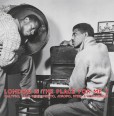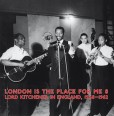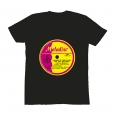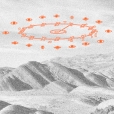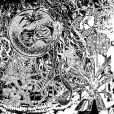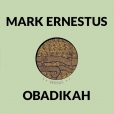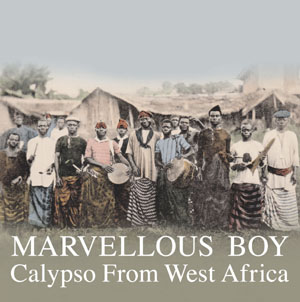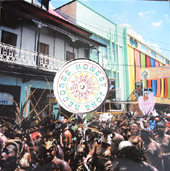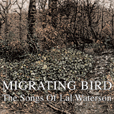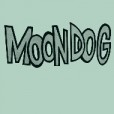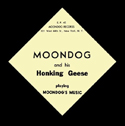Your basket is empty

‘*****’, The Times, Independent On Sunday, Daily Telegraph, What’s On, Evening Standard, The Independent. ‘Marvellous pop — catchy, fun, young, effortless’, The Times; ‘one of the delights of the age’, Songlines.
London Is The Place For Me
5 And 6: Afro-Cubism, Calypso, Highlife, Mento, Jazz
Honest Jon's Records
More open-hearted, bitter-sweet, mash-up postcards to the here and now, from young black London.
Proper Brit Pop.
London Is The Place For Me
7 And 8: Calypso, Palm-Wine, Mento, Joropo, String Band; Kitch In England
Honest Jon's Records
The latest volumes in this much-loved, highly-acclaimed series presenting the music of the Windrush milieu: the post-war, London recordings of West Indians and West Africans, in the first wave of modern migration to Britain.
‘One of the delights of the age’ (Songlines).
’Superlative’ (Mojo); ’superlative’ (Independent); ’sensational’ (Observer).
‘Hugely evocative and poignant’ (Daily Telegraph); ’sheer joy from start to finish’ (Sunday Telegraph); ‘a witty and joyous testament’ (Guardian).
‘Impeccably curated and packaged’ (Wire).
***** Mojo, ***** Times, ***** Independent, ***** Daily Telegraph, ***** Evening Standard, ***** Metro.
Presented as a luxurious mini-book — all paper, no plastic — with suspended card sleeves for the discs. Forty pages of fabulous, previously-unseen photos and full notes, including a terrific, specially-commissioned essay by Kitch biographer Anthony Joseph.
Still deeper forays into the musical landscape of the Windrush generation.
A dazzling range of calypso, mento, joropo, steelband, palm-wine and r’n'b. Expert revivals of stringband music, from way back, alongside proto-Afro-funk.
An uproarious selection of songs about the H-Bomb and modern phones, prostitution and Haile Selassie, mid-life crisis and the London Underground, racism and solidarity, the Highway Code and a 100% West Indian Royal Wedding.
For example some frantic British-Guianan joropo music-hall about Eatwell Brown from Clapham, who starts out biting off a piece of his mother-in-law’s face at a party, then devours everything in his path… a chunk of Brixton Prison, a Union Jack, a policeman’s uniform. Or Marie Bryant — collaborator of Lester Young and Duke Ellington — taking time off from skewering the South African PM Daniel Malan at her West End revue, to contribute some arch, swinging filth about uber-genitalia.
Superior sound, courtesy of Abbey Road, D&M and Pallas; lovely gatefold sleeve; full-size booklet, with full notes, and fabulous previously-unseen photographs, including a set from the family archive of Russ Henderson (who led the first, impromptu Notting Hill Carnival march, in 1966).
The genius of Lord Kitchener has been the mainstay of our series.
In this volume devoted to his post-war London recordings, Kitch plays his many roles with signature aplomb and poised subtlety.
First there is the hooligan chantwell, up for anything in the hurly-burly of carnival proper; and then the casual reporter, firing off postcards to Trinidad about taxis, flashy booze, fast women and football in Manchester, with homesickness and grievance nestled just behind the optimism, pride and tentative senses of belonging.
There is the bearer of news from home, in detailed accounts of murders, tales of stupid local coppers, and reminiscences about food and particular mango trees; the political thinker, considering racism and Africa; and the diarist, with his vivid tales of infidelity, and disclosure of the break-up of his marriage, and his desire to get away.
One foot in the UK, the other in Trinidad; but the man himself somewhere in-between. Kitch In The Jungle, nobody around. A ‘diasporic explorer’; a key twentieth-century witness, alongside such hallowed figures as Samuel Selvon and Edward Kamau Braithwaite.
Though in frustration Kitch would sometimes take over double-bass duties himself, the musicianship of Rupert Nurse, Fitzroy Coleman and co is top-notch. The original glorious sound is down to Denys Preston, recording for Melodisc, often at Abbey Road Studios (where we transferred and restored the 78s compiled here).
Presented in a lovely gatefold sleeve, with a full-size booklet containing superb, specially-commissioned sleevenotes by Kitch biographer Anthony Joseph, and fabulous, previously-unseen photographs.
With loving detail reproducing the label of the original Lord Kitchener 78, in all its finery. Expertly hand-printed in zinging pinkish red and canary yellow (and white and black), on Gildan ‘ultra cotton’ shirts. Bim.
‘Lovely… another gem from Nashville’s underground’, Word; ‘one of the finest pop records ever made by a Nashville band’, Nashville Scene.
Visceral, elemental, electronic funk, conjured from scraps of sound, breath, mutterings, dubwise remembrances, scuffling, sweat and blood, thin air — ‘crawled out of the slime’, as the opener puts it, self-engendering like the baddie in Terminator — all harnessed to cruelly grooving earthquake bass and b-boy drum science.
Rhythmically it has ants in its pants and it needs to dance, with an improvisatory, streetwise nervous energy and uninhibited, purposeful rapture — akin to this guy, say, eighteen minutes in — crossed with on-song Pepe Bradock and stripped-to-the-bone, mongrel hip-hop.
It’s unruly and edgy, a bit off its rocker, emotionally ranging — typically anxious, often nostalgic — and riveting dance music.
Judge-dread mastering by D&M; first-class Pallas pressing; stunning gatefold artwork by Will Bankhead.
Ruff ruff ruff.
Three brilliant re-routings of Detroit machine funk — Moodymann in particular — into deep mid-Atlantic co-minglings with raw, old-school hiphop and house.
Str8 Crooked is clattering, chugging jack, holding something like Paisley soul under the water; Build Back Better Sweatshops is more driving, riven with breakdowns and horror-show vocal samples. With an uptempo downbeat which nonetheless sounds like a tolling bell, the epic, immersive, sixteen-minutes-plus Episcopi Vagantes pulls off the deadly combination of a kind of stifled, timeworn, melodic wistfulness and percussively restless, passing-through urgency.
This is killer dance music, run through with swingeing, parping bass and ruff b-boy drum-machine rhythms: encrusted and detailed, mangled and nervy, but intensely hard-grooving; wired with punk insouciance, edginess, and free spirit.
Bim bim bim.
A stunning survey of the 1970s heyday of this great Japanese singer and countercultural icon.
Deep-indigo, dead-of-night enka, folk and blues, inhaling Billie Holiday and Nina Simone down to the bone.
A traditional waltz abuts Nico-style incantation; defamiliarised versions of Oscar Brown Jr and Bessie Smith collide with big-band experiments alongside Shuji Terayama; a sitar-led psychedelic wig-out runs into a killer excursion in modal, spiritual jazz.
Existentialism and noir, mystery and allure, hurt and hauteur.
With excellent notes by Alan Cummings and the fabulous photographs of Hitoshi Jin Tamura.
Hotly recommended.
Sublimely convulsive Shangaan electro-gospel by a pastor from Giyani, Limpopo, recorded in 2008, brimming with aching, plaintive, mournful spirituality. However fractured, multi-faceted and fresh the music comes across — that signature whistle and sampled marimba, a little wonky high-life, rough, skittering drum patterns, no bass — the surging vocal lines and harmonies are unmistakably rooted in traditional South African music.
Consummate Berlin dub science by the maestro.
Beautifully textured, shuffling Lagos funk, on home-made percussion… militant horns… and a walloping, filthy-stinking kick-drum like the bucking, hairy hind-most of the Devil himself.
The Dub is Warrior Charge, 2016.
What a record. Bim squared.
Marvellous Boy is the West African counterpart of the 1950s Soho scene of our series London Is The Place For Me. Calypso, highlife and jazz, brimming over with lust for life, topicality, and extravagant creativity.
Tearaway soca from the studio of Darryl Braxton, mixing it up with ragga and rave vibes.
Alasdair Roberts, Nancy Elizabeth, Michael Hurley, James Yorkston, Victoria Williams, Richard Youngs: six ravishing, luminous new interpretations. Short-run vinyl sampler, fine pressing, silk-screened sleeves.
‘folk album of the year’ (The Observer); ‘***** ... not a note is wasted’ (Time Out); **** Mojo; **** Uncut; ‘Compilation Of The Year’ (The Guardian).
Originally released by Epic in 1953.
From the 1950s, when Moondog was homeless and busking in NYC. ‘His later records may be better known, but this is the real shit’ (Byron Coley, The Wire).
Startlingly remastered at Abbey Road.
Originally relelased on the Moondog label in 1955.
Meditative, absorbing dance music in true Moritz style — at times seemingly transfixed by its own elements, and minimal almost to vanishing-point, but quickly back ticking, kicking and amassing.
At its darkest and most driving. The group is clear and unanimous — this is their best yet.
At its most open, shifting and expressive to date. For all the music’s complexity and deep coherence, freedom is the key. At times it grooves hard; at others it’s lush, romantic.
With Tikiman and Marc Muellbauer.
A handful of LPs signed by Moritz!
